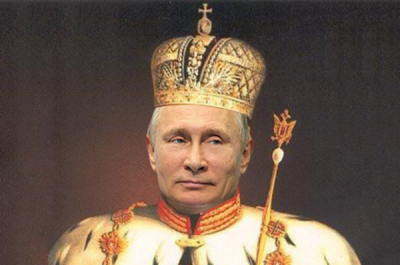The Myth that Putin Was Bent on Conquering Ukraine and Creating a Greater Russia

All Global Research articles can be read in 51 languages by activating the Translate Website button below the author’s name.
To receive Global Research’s Daily Newsletter (selected articles), click here.
Click the share button above to email/forward this article to your friends and colleagues. Follow us on Instagram and Twitter and subscribe to our Telegram Channel. Feel free to repost and share widely Global Research articles.
***
There is a growing body of compelling evidence showing that Russia and Ukraine were involved in serious negotiations to end the war in Ukraine right after it started on 24 February 2022 (see below). These talks were facilitated by Turkish President Recep Erdogan and former Israeli Prime Minister Naftali Bennett and featured detailed and candid discussions on the terms of a possible settlement.
By all accounts, these negotiations, which took place in March-April 2022, were making real progress when Britain and the US told Ukrainian President Zelensky to abandon them, which he did.
Coverage of these events has focused on how foolish and irresponsible it was for President Joe Biden and Prime Minister Boris Johnson to put an end to these negotiations, given all the death and destruction that Ukraine has suffered since then – in a war that Kyiv is likely to lose.
Yet an especially important aspect of this story regarding the causes of the Ukraine war has received little attention. The well-entrenched conventional wisdom in the West is that President Putin invaded Ukraine to conquer that country and make it part of a Greater Russia. Then, he would move on and conquer other countries in eastern Europe. The counter-argument, which enjoys little support in the West, is that Putin was mainly motivated to invade by the threat of Ukraine joining NATO and becoming a Western bulwark on Russia’s border. For him and other Russian elites, Ukraine in NATO was an existential threat.
The negotiations in March-April 2022 make it clear that the conventional wisdom on the war’s causes is wrong, and the counter-argument is right, for two main reasons. First, the talks were directly focused on satisfying Russia’s demand that Ukraine not become part of NATO and instead become a neutral state. Everyone involved in the negotiations understood that Ukraine’s relationship with NATO was Russia’s core concern. Second, if Putin was bent on conquering all of Ukraine, he would not have agreed to these talks, as their very essence contradicted any possibility of Russia conquering all of Ukraine. One might argue that he participated in these negotiations and talked a lot about neutrality to mask his larger ambitions. There is no evidence, however, to support this line of argument, not to mention that: 1) Russia’s small invasion force was not capable of conquering and occupying all of Ukraine; and 2) it would have made no sense to delay a larger offensive, as it would afford Ukraine time to build up its defenses.
In short, Putin launched a limited attack into Ukraine for the purpose of coercing Zelensky into abandoning Kyiv’s policy of aligning with the West and eventually bringing Ukraine into NATO. Had Britain and the West not intervened to scotch the negotiations, there is good reason to think Putin would have achieved this limited objective and agreed to end the war.
It is also worth remembering that Russia did not annex the Ukrainian oblasts of Donetsk, Luhansk, Kherson, and Zaporizhzhia until September 2022, well after the talks had ended. Had a deal been reached, Ukraine would almost certainly control a far greater share of its original territory than it does now.
It is becoming increasingly clear that in the case of Ukraine, the level of foolishness and dishonesty among Western elites and the mainstream Western media is stunning. See this.
*
Note to readers: Please click the share button above. Follow us on Instagram and Twitter and subscribe to our Telegram Channel. Feel free to repost and share widely Global Research articles.
Featured image is from The Unz Review

